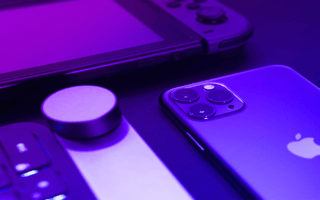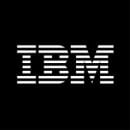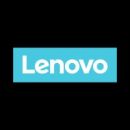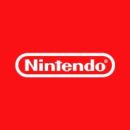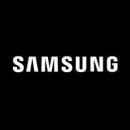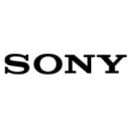If the tech world could be cleanly divided into three camps, there would be hardware companies, software companies and those companies that straddle the line between the two industries.
Basically, hardware companies produce those tangible tech objects that people can use or interact with, while software companies bring those devices to life with lines of code.
Top Hardware Companies
- Apple
- Asus
- Dell
- HP
- HTC
- Lenovo
- Nintendo
- Sony
Hardware companies design and develop computers, monitors, internal and external hard drives and keyboards, as well as devices like smartphones, digital cameras, speakers, televisions, gaming consoles, virtual reality headsets and quantum computers.
45 Hardware Companies to Know
From screens that fold to virtual reality headsets that track a user’s eye movements, here are the hardware companies designing and developing the latest devices being used at home and in the workplace.
Robotics company Piaggio Fast Forward specializes in devices and mobility solutions, like its Gita and Kilo robots, which are designed to assist users in carrying things and navigating urban environments. Founded in 2015 by the Piaggio Group, the Italian manufacturer that created the Vespa scooter, Piaggio Fast Forward is headquartered in Boston, Massachusetts.
Apptronik builds robotic systems designed to work with and alongside human counterparts. Using machine learning, the company develops humanoid robots that can handle difficult-to-fill jobs in industries like logistics and construction. One of Apprtonik’s products is an upper-body bot that works with its hands; another is a robot with facial features that is used for social connection.
SteelSeries designs and manufactures hardware for the gaming industry. Its products are built to augment gaming consoles and gaming computers, so recreational and professional players alike can customize their playing experience according to the specs they prefer. Players uplevel their setups with SteelSeries’ audio headsets, speakers, mice, mouse pads, controllers and keyboards.
Machina Labs makes hardware products for robotic manufacturing technologies. It builds and operates “smart factories,” where robots assemble components to build products in a fully automated context. The company works with formed sheet metal to design prototypes and produce aerospace, defense, automotive and consumer product lines.
Relativity Space designs and builds rockets. The company is developing Terran R, a reusable, medium-to-heavy lift rocket intended to deliver customer payloads to orbit. Relativity Space aims to meet the growing demand for launch capacity while advancing science and exploration. Founded in 2016, the company has its headquarters in Long Beach and maintains hubs in other locations around the United States.
Carbon Robotics makes agricultural robots powered by artificial intelligence technology. Its signature product is the “LaserWeeder,” an industrial agriculture tool that uses computer vision, robotics tech and AI deep learning to deliver a 100 percent chemical-free weed control process that allows crops to grow, increases crop yield and eliminates the harmful effects of pesticides on food products.
Samsara makes industrial IoT products for managing fleet vehicles and heavy equipment. The company’s hardware engineering team creates rugged devices that are ready for field conditions, including AI-enabled cameras and tools for monitoring equipment performance and location. The company has put over 1.5 million devices to work for thousands of client businesses.
Sierra Space is an aerospace company that develops technology to enable transportation and collaboration in space for both commercial and national security applications. Through a contract with NASA, the company’s Dream Chaser spaceplane will conduct multiple cargo missions to carry supplies to the International Space Station. The company also has a space station called Orbital Reef in the works that will be used for commerce, research and tourism.
Mason provides products and services for building smart devices. It offers clients hardware options that can be paired with its developer tools, allowing them to quickly put together a proof-of-concept. The company says every device in its portfolio is made “to be modular and adaptable” so that they can be tailored to suit use cases across industries like healthcare and retail.
Founded in 2015, IonQ builds quantum computers. Its quantum hardware uses individual atoms at the heart of its quantum processing units, or qubits. The atoms are trapped in 3D space and the company says these trapped ion quantum cores are “the most promising platform for quantum computing in development today.”
Vast designs and builds artificial gravity space stations meant for people to be able to live in while in space. The company has equipped its Haven-1 space station with features like onboard WiFi, a large dome window that passengers will be able to look out of and a capacity of four crew members. The company says it can be used by space agencies or private individuals who will be able to stay on the space station for up to 30 days.
American hardware company Vizio makes smart televisions, sound bars and TV accessories. Its products range from the accessible D-Series base models to the premium OLED line with 4K resolution. Unlike LED, which has a backlight, OLED monitors distribute light to each pixel individually, allowing for deep, pure black and high-contrast white.
Biofire is a hardware company focused on developing smart guns: personalized firearms with authorized-use technology like RFID or biometric recognition that prevents accidental or intentional misuse. Founded with the mission of decreasing gun accidents, suicides and criminal use while supporting responsible gun ownership, Biofire’s industrial design team comes from backgrounds in robotics, rockets, satellites, automotive tech, medical devices and supersonic jets.
Doodle Labs makes mesh networking components for robotics, drones and the Industrial IoT. Mesh networks are groups of connectivity devices, like routers, that function as a single network. The company’s product roster includes industrial Wi-Fi transceivers that enable connectivity over vast distances; Mesh Rider Radios, which power communications in wearables as well as in unmanned aerial, off-grid, forestry, construction and mining contexts; and radio accessories like antennae.
From iPhones to iPads, and soon, possibly, a mixed reality headset, Apple is one of the most well-known hardware companies — one that’s not only pushing the envelope when it comes to capability, but also design. According to MacRumors, Apple, after numerous delays, is expected to unveil 10 new or updated devices in 2023 including new MacBook Pro models, a larger version of its smart speaker the HomePod, as well as a new model of Airpods, the iPhone 15 and the long-awaited headset for accessing the metaverse and other virtual and augmented worlds.
Besides being an online marketplace, Amazon is also known for consumer devices like the Kindle and Alexa-enabled smart speaker, the Echo. The company designs many of its products, but also spends billions of dollars to acquire other hardware companies like the maker of Roomba, iRobot, and the smart home security device company, Ring, In January, the latter unveiled a new addition to their camera lineup, the Ring Car Cam, which is designed for vehicles.
Asus is a leading hardware company that produces phones, laptops and desktops, monitors and wearable devices like the VivoWatch, which is integrated with medical grade sensors that can monitor a user’s heart rate. In January, Asus launched a new controller for the popular gaming console Xbox, which features an OLED display, along with bluetooth, radio frequency and USB-C connectivity.
Known for designing and developing cameras and lenses for professional and amateur photographers, Canon also markets devices like high-end printers, scanners and sensors for office and industrial use. Additionally, the company develops multimedia projectors, cameras designed for filmmaking and even CT and MRI systems for healthcare settings.
Cisco develops networking hardware like routers and wireless access points geared toward enterprise businesses. It also provides cloud and cybersecurity equipment, as well as software used to manage and secure networks.
Another leading hardware company, Dell is widely known for its laptops, desktops and monitors. The company also develops servers and other storage devices, along with devices like speakerphones, wireless headsets and soundbars for enterprise businesses.
While Google may be best known for search and email, the company’s devices, like its Nest thermostat and smart speaker, and Pixel smartphone, make Google a top hardware company. Last year, the company unveiled its first Pixel smartwatch that integrates with Google Home and Nest devices, as well as other Pixel products like wireless headphones.
HP is a hardware company that’s been able to successfully integrate its devices in homes and offices. Best known for its line of powerful laptops and desktops, HP also developed VR headsets for gaming and use in the workplace, as well as 3D printers, monitors and other equipment for digital workstations. The company even has a robot that can print plans and layouts at construction sites.
Known for its smartphones, HTC branched out even further with Exodus 1, a blockchain phone that combines smartphone technology with a cryptocurrency wallet integrated with a bitcoin ledger stored on a SD card. HTC will also soon help users enter the metaverse at work and at home with a new VR headset, Vive XR Elite, that’s set to launch in February, according to CNET.
IBM specializes in hardware devices for the infrastructure technology industry. Its line of products include power servers, storage solutions and single- and multi-frame systems like the company’s z15 microprocessor. In 2022, the company, for the first time since 1993, failed to claim the top spot among patent filers, according to Bloomberg.
Lenovo is a hardware company known for its laptops, personal computers and tablets. Other devices include wireless headphones, a smart clock and digital picture frame. In January, the company unveiled its new Yoga Book, which is a dual-screened laptop with OLED displays. It also announced a smart paper tablet dubbed E-Ink with enough storage for 50,000 pages of writing and drawing.
LG is a hardware company specializing in televisions and gaming monitors, as well as home appliances like dishwashers, ranges and refrigerators. In January, the company began shipping its 45-inch curved gaming monitor with other sizes expected to be available later in 2023. The company offers a line of wireless headphones and speakers. Additionally, its line of OLED gaming monitors will also be available in 2023.
From mice and ergonomic keyboards to home security cameras and wireless chargers, Logitech offers a wide variety of hardware geared for homes and offices. It also offers a line of products for streaming, like cameras and microphones, and tools like cameras for workplace video conferencing.
Though known for its social network, Meta, the company formerly known as Facebook, has become more focused on hardware development in recent years. The company is focused on hardware initiatives geared toward the metaverse, having released two VR headsets last year, the Quest 2 and Quest Pro, with plans in the works for a Quest 3 and a wearable device for user’s wrists, according to the Washington Post.
Micron is a hardware company specializing in storage and memory devices. For consumers, Micron developed a 1 terabyte micro SD card designed for capturing video, dubbed the c200. The company also offers other microSD and SD memory cards geared for industrial settings, like capturing AI-enhanced video surveillance.
With a long history of developing popular game consoles like the Super Nintendo and N64, Nintendo released its Switch in 2017, which has become one of most popular gaming systems alongside Sony’s Playstation and Microsoft’s Xbox. The company has two other versions of consoles out alongside its base model: the Switch Lite and a model with an OLED display.
Roku develops devices like streaming players, speakers and sound bars, and smart home products such as cameras, lights, plugs and video doorbells. According to CNBC, Roku will be releasing its own line of smart televisions, 11 in all, beginning in the spring of 2023.
Samsung develops smart televisions, monitors, audio equipment, tablets and smartwatches. The company also offers a curved monitor dubbed the Odyssey Ark that can be rotated vertically into “cockpit mode,” allowing for more than one content source to be displayed. Additionally, Samsung offers a line of smartphones, the Galaxy Z Fold4 and the Z Flip4, with foldable displays.
Printers, copiers and audio and visual equipment from the hardware company Sharp are often used in offices and other work settings. The company also offers a line of displays and projectors, as well as laptops under the brand name Dynabook. For consumers, Sharp offers a 65-inch smart television, the Aquos, equipped with Google Assistant and Roku.
With its popular gaming console the PlayStation, a line of mirrorless cameras, smart televisions and robotic dog, aibo, Sony is one of the most well-known hardware companies in the world today. In January, the company unveiled a new controller for the Playstation that increases accessibility for users with disabilities. Sony’s design team worked with accessibility experts and tested more than 12 designs, according to a company blog post.
Western Digital is known for its storage products like memory cards for digital cameras and external hard drives compatible with both Mac and PCs. The company also offers other products such as USB flash drives, embedded flash drives and platforms for data center and server storage.
Halter’s solar-powered collars for cattle promote optimized beef and dairy farming operations. The devices offer geofencing capabilities that rely on sound to direct the animals' movements for efficient grazing and feed management. Farmers can use Halter’s mobile app to monitor insights about their livestock and pasture.
WHOOP makes wearable technology that lets members stay on top of important health and fitness metrics. Its wrist devices feature a screen-free design so they're not distracting, and members can access data about the quality of their sleep, for example, or their stress levels throughout the day using the WHOOP app.
AMP makes technology that incorporates artificial intelligence and automation solutions into recycling infrastructure. For example, the company’s Delta robotics sortation system is able to scan and recognize materials so they can be quickly and accurately handled based on a facility’s individual specifications.
Dandy provides dental practices with digital workflow solutions and lab services meant to improve patient care. The company’s technology offerings include an intraoral scanner built to simplify the process of capturing accurate digital impressions for designing and fabricating implants, dentures and other products.
Grocery TV provides brands with digital advertising solutions in the form of screens that display their messaging for shoppers through a network of brick-and-mortar retail partners. It operates more than 21,000 display screens that are intentionally placed so they can grab shoppers’ attention at important store locations, such as the front entrance or pharmacy area.
Gogo Business Aviation provides airlines with inflight internet service, offering routers and antennas that enable connectivity experiences. The company also connects airlines with entertainment solutions that give their passengers access to movies, TV shows and other media content while they’re in the air.
True Anomaly designs, engineers and manufactures aerospace solutions with an emphasis on sustainability and bolstering global security. Its Mosaic operating system is designed to support efficient tactical decision making and mission autonomy. True Anomaly also created an autonomous orbital vehicle known as Jackal that features advanced maneuvering capabilities.
Red 6 is a veteran-owned AR company focused on developing technology to innovate pilot training. Its Advanced Tactical Augmented Reality System, known as ATARS, alongside its Enhanced Visual Environment, or EVE, Headset can work in outdoor, full daylight, high-speed environments, and the technology offers multiplayer capabilities.
Caliola Engineering is a Colorado-based company that specializes in building both hardware and software communications solutions that are designed to support missions for U.S. government agencies. For example, SCAPP is Caliola’s positioning solution that relies on communication satellite signals when GPS is denied.
Turion Space develops aerospace and defense solutions to ensure that space exploration is secure and accessible. The company makes a wide variety of software products, along with satellites that are case built to keep low earth orbit safe.

